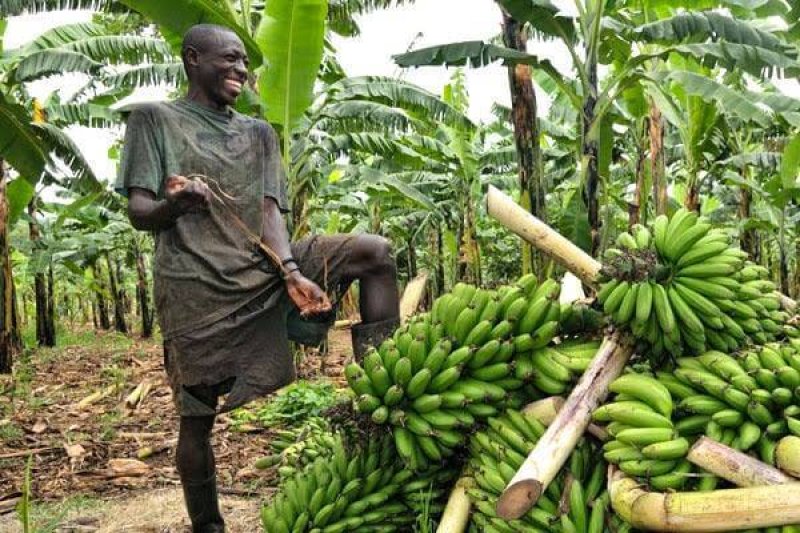She’s one of hundreds of African scientists, and assorted scientific research projects, to benefit from international collaborations in the highly specialized field of agricultural biotechnology. These partnerships have greatly advanced public sector work on such important food crops as maize, cassava, rice and in the case of Namayana, an East African highland banana known locally as matooke.
…
Since [2010], Namanya and her colleagues at Kawanda, the leading banana research institute in Uganda, have been using genetic engineering to address several challenges affecting the country’s banana production.
She said that biotechnology allows…researchers to do things more efficiently than would [otherwise] be possible…such as successfully adding a gene from a wild banana to the matooke to increase its vitamin A content. The research…is intended to help prevent the many diseases associated with vitamin A deficiency by improving the nutritional value of a food that Ugandan women and children typically eat on a daily basis.
…
Namanya told the Alliance for Science that her stint in [Australia] was a game changer…given the fact that biotechnology was new to Uganda and skills using genetic engineering were badly needed. “It exposed me to advanced technology,” she revealed.
Read full, original article: Africa’s collaborative biotech research bears fruit































